There is an abundance of Facebook groups out there. I am sure you’re even joined a couple of eCommerce groups yourself. However, did you know that Facebook groups are not only for connecting and learning from other online store entrepreneurs, but are also an epic traffic-driving force?
Yes, way! As of today, Facebook has an impressive 1.8 billion active users and well over a billion active groups. Those are some incredible numbers. To put this into perspective: according to an article posted this time last year, by the end of 2015 alone, more than 1 billion people had left about 10 billion comments in groups and stamped 25 billion-plus likes on group posts.
When a platform is estimated to sign up 6 new profiles every second and each Facebook user can follow up to 6k groups, can you really afford to not be doing everything you can to tap into this potential shopper and lead-generating super star? Well the proof is in the pudding, as they say, and you only have to look as far as Ryan Stewart from Moz’s experiment, who put his ‘advice’ where his mouth is and did a Facebook group experiment. This experiment lead to a whopping 6,000 organic visits to his site from his own Facebook group. Or to look at eCommerce store Flaunt Boutique, which attributes 50% of Facebook sales to selling in Facebook groups.
You want more proof? We have also been using groups to drive our blog. We share posts on a weekly basis to the 20 eCommerce Facebook groups we are involved in and a part of, and we’re getting at least 2,000 readers each week from it.
To capitalize on this group phenomenon, there are a bunch of things you can try, groups you need to look for and group etiquette you will need to adhere to – to protect your brand and your place in the group. In this blog we will explore the things you will need to do to grow your website traffic using Facebook groups.
Finding Groups that Fit Your Store Niche
The first thing to do is to think about the kind of groups where your content and products could be relevant. For example, if you’re selling unusual gadgets or have comic-related apparel, you would look for one of these groups.
Think about the kind of groups YOUR customers would be a part of. Once you have an idea, there are two ways you can find them:
1: Through Facebook Search
2: Through Group Discovery
Click on the Groups tab from your newsfeed and it will take you to your Groups page.
Here you can search local groups in your area, groups your friends are a part of and groups by genre.
Before joining a group, check the description to make sure its interests align with the niche you’re selling in, its type and how many members the group has. There are two types of groups. Open groups, where content that you engage with and share within the group will show up on the newsfeeds of the group members for their friends to see. And closed groups, where your engagement will not be seen by non-group members.
Guide to Connecting With a Facebook Group
Now, as much traffic as posting, commenting and sharing in groups can bring, if it’s not done correctly, it could result in you being kicked out of the group, coming off as spam and using valuable time with low results. The trick is to connect. To communicate and be helpful. To stay on topic and be relevant. And most of all, to adhere to group guidelines.
Stick to Group Guidelines
Before joining, posting or commenting any Facebook group, read the group guidelines. They will normally be pinned to the top of the group page (the first post), or be explained in the group description.
If the group doesn’t allow self-promotion, it doesn’t necessarily mean you can’t push your eCommerce store. It means you need to approach it from a different angle than just randomly posting links to your store.
Commenting
To make Facebook groups work for you, your comments, posts and suggestions need to add value, be on-point, and connect with the person you’re engaging with. For example, if you are selling beauty products and someone asks about skin care, you would want to engage with the user on a personal level rather than just posting a link. You could ask specifics about what type of skin they have, for example, and then suggest specific products for her needs and offer some advice with the post.
I will give you an example. Recently I noticed a link to a new app being commented in a few neighborhood groups I am a part of. You know, those groups where people post leads to house-sharing and rentals, sell their secondhand furniture or to ask for suggestions on the best service professionals such as plumbers and locksmiths. Given the niche of the app, these groups were totally on target for them to use to target traffic within their niche. The problem was that I noticed that they were commenting to direct people to their site, without taking the post content into consideration. Ultimately making their comments more spammy than helpful.
Stay Engaged
Don’t just post the link to your online store and leave. Add a description to your store and keep an eye on comments and questions. Not only does this show off your customer service side and your knowledge in the niche, but drives engagement. Engagement will drive your post higher on the group page.
Limit Spamming by Maximizing Visibility
Limit your posting in groups to no more than once a day and don’t post the same content to multiple groups on the same day. Chances are that a lot of the group members you’re targeting will be a part of a few groups within the niche, therefore they may see the content you’re posting in multiple groups. In other words, maximize exposure by alternating your post content and post times across multiple groups.
Find Relevant Threads
Check in on groups regularly to see if there are discussions you can get involved in. You can search keywords or phrases at the top of the group.
Use comments to give advice and direct users to your online store where relevant.
Creating Your Own Facebook Group
Creating your own Facebook group could bring even more traffic rewards for eCommerce stores. A niche-related Facebook group could help you engage with potential shoppers in a whole new way, while driving traffic to your site. Plus, Facebook now allows you to promote your groups and events, meaning max exposure! A good example of a small business using groups to make personal connections with her shoppers is Karen from Lake Providence Lodge scented wax melts.
When deciding on a group you want to create, think about the niche you’re selling in and the types of topics that would add value to potential shoppers. For instance, if you sell phone accessories you could create a group that discusses phone brands, phone hacks and the latest phone tech.
Pro Tip: When starting your group you will want to plan valuable content that makes the group informative, and a go-to resource for that niche. Some group content you could use to grow your member list, and ultimately drive more traffic to your store, includes: product polls, tips, and inspirational posts to get members invested in the group. For example, if you’re an online jewelry store, you could offer tips on choosing the right engagement rings or offer guides on how to select the right pieces for certain looks or outfits.
There you have it, how to use Facebook groups to grow your website traffic. May the force (traffic force) of Facebook groups be with you! Looking for more Facebook Store help? Following our Facebook page to look out for our upcoming Facebook guides coming out this quarter.

Nicole is a content writer with over sixteen years experience and flair for storytelling. She runs on a healthy dose of caffeine and enthusiasm. When she's not researching the next content trend or creating business content strategies, she's an avid beachgoer, coffee shop junkie and hangs out on LinkedIn.
Recommended articles
 Facebook Ads for eCommerce: 16 Strategies, Examples & Tips
Facebook Ads for eCommerce: 16 Strategies, Examples & Tips
 How to Build a Winning eCommerce Ads Strategy
How to Build a Winning eCommerce Ads Strategy
 Google Ads for eCommerce: Everything You Need to Know
Google Ads for eCommerce: Everything You Need to Know
 10X Your Traffic with PPC Management Software
10X Your Traffic with PPC Management Software
Comments
Powered by Facebook Comments
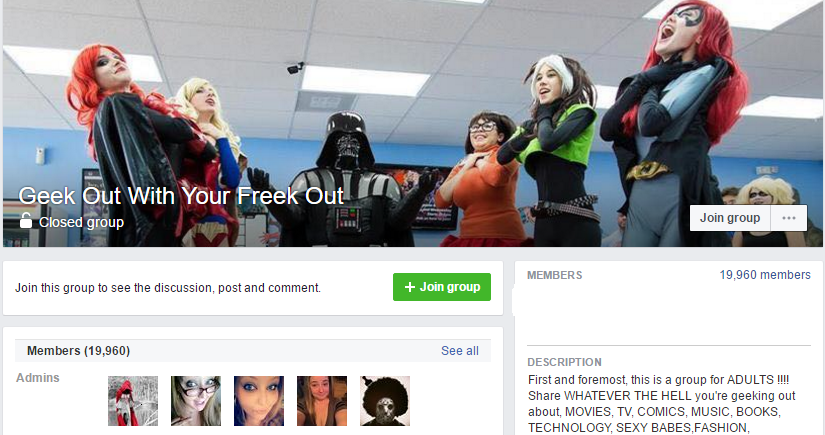
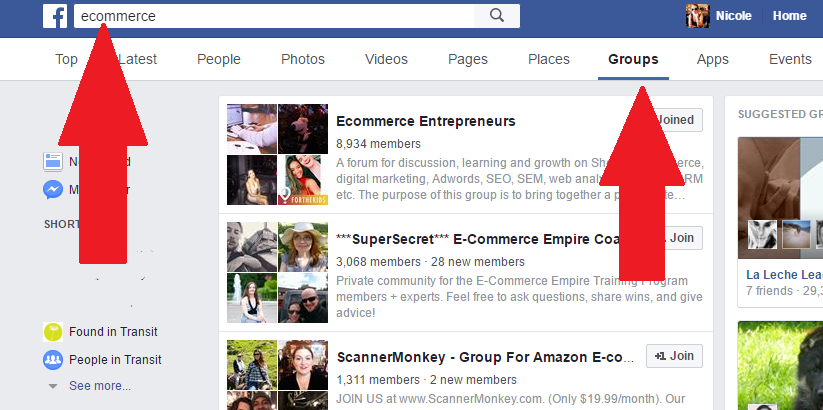
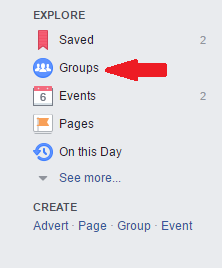

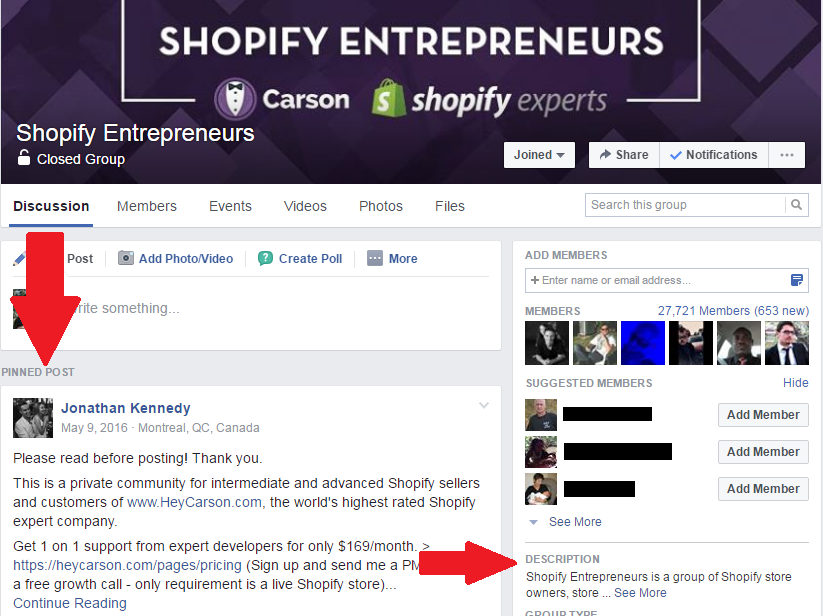
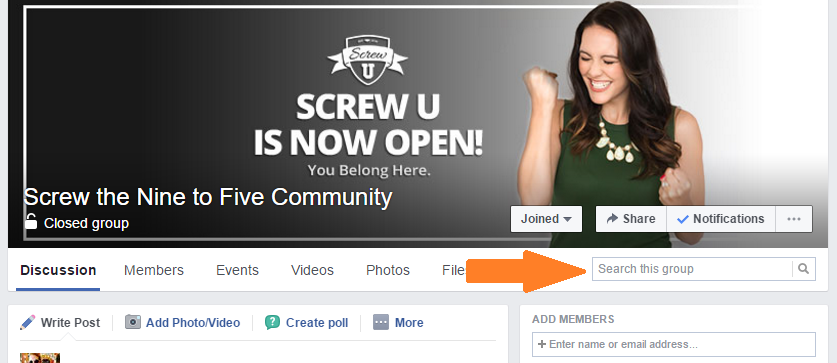

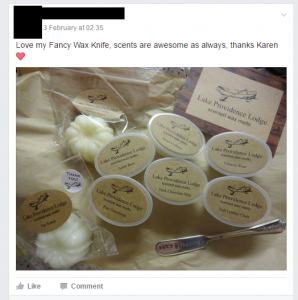
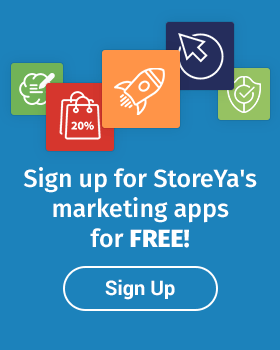
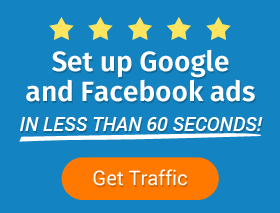
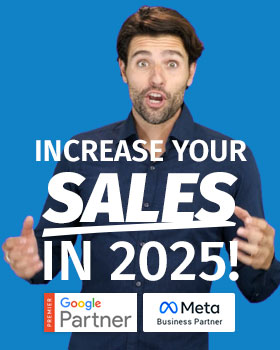
This helps alots.
Thank you
This help me a lot.
Thank you.